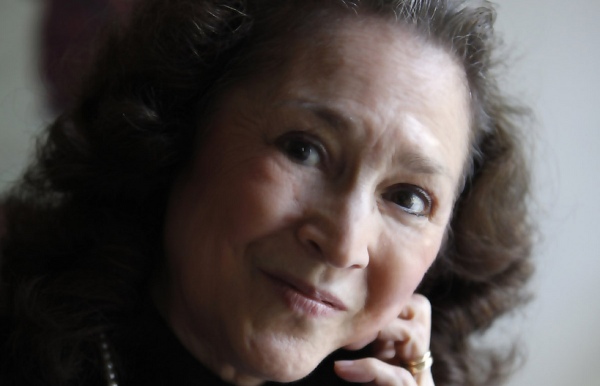Sherry Ricchiardi is a senior writer for American Journalism Review, specializing in international issues, and a professor of journalism at the Indiana University of USA.
What is the most essential tip for multimedia journalists?
I think it’s what paved the way for traditional journalism: curiousity, good skills, knowing how to interview, knowing how to do our sourcing, knowing how to bring the story together. So the basic principles stay the same but now we are adding new layers of talent and new layers of skills. You have to have a good eye and you have to see: ok, maybe I can do a video instead of just photos here. You may think what elements can I bring in, so we’re expanding our awareness of how we provide information; we are expanding the horizon, and that’s a great challenge. I think the most important thing is that it’s not just the news of the moment or the news of the day: we can start with the news of the day and then expand it into multimedia. How are we going to use it? That’s the question for American journalists and Armenian journalists. We have the power and how do we use it for the best of our profession?
How has the relationship between reporters and readers changed as a result of multimedia journalism?
I think the most important thing it does is it brings the public into our world. We allow them to come into our journalism, to participate with us, leave comments, click on different places — wherever they’re interested in. The stories look more visual;,maybe the visuals attract them more than reading, but it’s their choice. It puts the power in the hands of the reader, of the user. We not only allow them into our world, inviting them into our world of journalism, we also allow them to keep layers. We are saying we care about your comment, we care about if you want to blog with us, and that is so important we haven’t been able to do that. In traditional journalism we say: you can write to the editor and that’s very different now, and I think that the public really appreciates it. We are seeing that the interest is growing and even users that loved traditional media are coming back, because they are saying that we now have added this dimension to our coverage. We are a very mysterious world: people wonder what journalists do, how they make decisions, why do they do what do they do? And this demystifies it: it helps them see what we do and participate in what we do. It’s wonderful.
How has the role of the journalist changed?
I think it’s a big challenge for us. I think the role is the same: we are the watchdogs for the public and we watch government wherever we are, and we bring social issues. I said to a group of journalists the other day: don’t think that investigative reporting is politics, it’s everything, it’s health, it’s education, it’s everybody and everything. So I think it’ a great challenge for us; we are gonna to do better at what we do. I’m a professor at an American university and we are changing our curriculum to accommodate this. We are trying to figure out what do we have to bring now to young people to get ready to do this. It’s kind of an exciting time. You know, we don’t have all the answers, but we are working towards getting, finding the answers. So I’m very excited. Lots of people are thinking: oh it’s just too much. I don’t think so at all, I think it’s where we are going to be in the 21st century and that’s that. You know if we don’t do that, we’re going to lose. So it’s absolutely important.
The older generation might not have multimedia skills; for example, my husband can do it, he can do all of this stuff easily — he worked in technology, he is an expert and I’m not. I’m a terrific reporter and I continue doing reporting; I’m really good at it but I can’t do this either. I can think of how we do a multimedia project but I can’t execute it — I can bring material for it, but somebody else will have to do the technology. And your generation knows how to do both.
What are the challenges of the media for today (in general and particularly in the US)?
The challenge for journalists today is that we are a global village. We can be in touch. Journalists everywhere are the same if we’re good. The bad journalists are bad anywhere. But the good journalists are the ones we need more in these countries. The challenge is how do we communicate with each other: there’s Skype, there’s email, there’s text messaging. You, as an Armenian journalist, can join together with a Turkish journalist, a Greek journalist, an American journalist and say is our country an origin for trafficking , are we a transit country? Are we a destination country? Let’s put together 5 countries and look at how trafficking is affecting our countries. You can do that with this machine.
That’s the wonderful part of it. For the first time ever we’re coming together as a global village and we’re speaking an international language; we know how to talk to each other, even if you don’t understand English, and I don’t understand Armenian. We talk about journalism; we talk about common values and common principles. So that’s the challenge now: how to use global network to serve the world better.
The challenge for American journalists is that our professions have been hit very hard by the recession and by the economy and we have enormous amounts of journalists being laid off. And now we are not hiring. A newsroom might have had 150 journalists and now it has 90. And you can do the same thing with 90 people that you did with 150, so what suffers? The quality suffers, the coverage suffers. We have greater demand than ever, because of the technology, but we have fewer journalists. So that’s our challenge.
Interview by Anna Barseghyan







